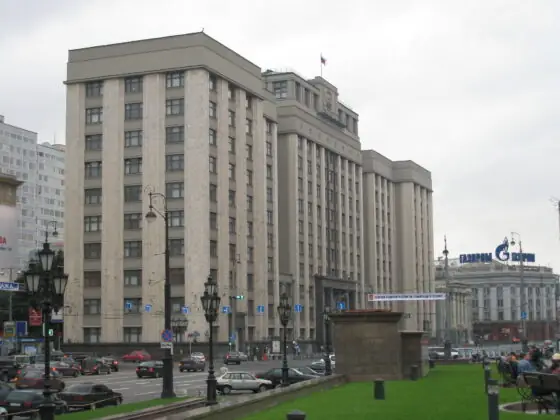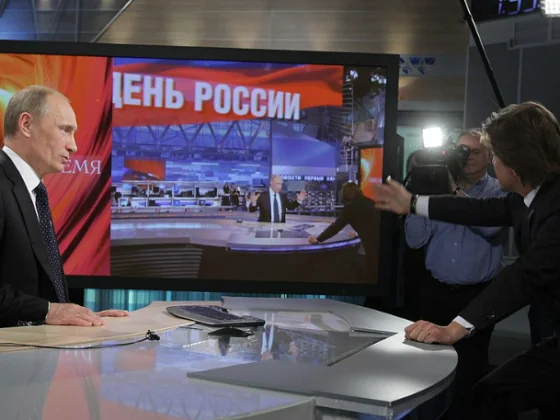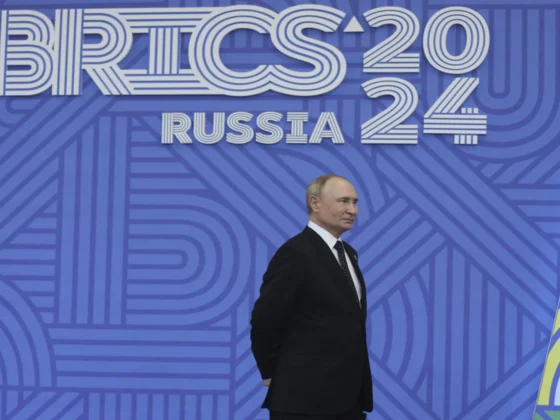(PONARS Policy Memo) Despite multiple official declarations of non-adversarial intentions issued by the United States and Russia over the past quarter-century, both sides have been unable to avoid repeated bouts of conflict escalation. This “unnecessary rivalry” can be explained in part as a “status dilemma”—a concept modeled on the better-known notion of “security dilemma.”
In the groundbreaking volume Status in World Politics (T.V. Paul et al., 2014), status is defined as “collective beliefs about a given state’s ranking on valued attributes,” such as ”wealth, coercive capabilities, culture, [or] demographic position.” Status is assumed to consist of two main components: “honor” and “authority.” The former derives from symbolic recognition of a given state’s place in a certain hierarchy, while the latter is the commonly accepted right of that state to use its power or have a say on a range of issues that arguably affect its interests.
A status dilemma is a situation in which an actor is seeking status upgrades that other actors could concede at an acceptable cost to their security, but instead—because of the uncertainty surrounding the status-seeker’s intentions—these other actors develop unnecessary fears of an attack being prepared against them and begin responding. Failure to recognize the status dilemma can lead to material consequences, such as heightened tensions, arms races, or even open conflict. Indeed, unresolved status dilemmas, that is, unwillingness of the sides to confer authority or honor on each other, have led to the growing rivalry between Russia and the United States over the last quarter-century. At the same time, opportunities exist for a virtually cost-free accommodation of mutual status aspirations; this, in turn, could open up new avenues for cooperation between the two sides.
The Quest for Status in US-Russia Relations
The author of the status dilemma concept used it to account for the spike in U.S.-Soviet tensions that occurred in early 1980s. In subsequent decades, status aspirations have remained a key driver of Russia’s policy toward the United States. Moscow has been looking for both symbolic recognition of a “great power plus” status and, more importantly, agreement by the Western powers to accept as legitimate and accommodate Russia’s statements of interest on a broad range of international issues relevant to Moscow.
Russia’s demands for “honor” and concurrent emotions have included:
– expressions of gratitude to Moscow by the West for agreeing to end the Cold War;
– abstention by the West from raising legitimacy issues about various aspects of
Russian politics;
– symbolic trappings of an “equal partnership,” such as high-profile bilateral meetings
between top Russian and U.S. leaders; and
– “alliance jealousy”—attempts to outbid NATO and the EU in attracting members
to Russian-led blocs.
For the last point above, “alliance jealousy,” the discussion between Russia and the West about NATO’s alleged non-expansion pledge (whether issued or not) is driven by status politics. From today’s perspective, the eventual accession of all Warsaw Pact countries to NATO paints Russia as the loser in the Cold War—a snub to Gorbachev and his successors who sought the status of co-victors in the Cold War or, at least, co-beneficiaries of its termination.
A country usually seeks “honor” to satisfy the need of its leaders to identify with their referent counterparts in other states (usually the world’s most powerful). In addition, a leader may value symbols of respect or other special treatment by foreign counterparts because these symbolic acts can easily be leveraged to raise the leader’s domestic political profile. It has been argued that the inability or unwillingness of the West to give enough “honor” to Russia usually instigates Moscow’s frustration, and even fear of material reprisals being (covertly) prepared against the aspiring actor.
However, unmet honor aspirations alone cannot fully account for conflicts of status. Symbolism in status politics lacks the power to trigger a serious clash. Honor only becomes relevant to the parties involved when bigger issues are at stake, such as the shaping of the broad normative framework of international governance or mutual recognition of great powers’ spheres of influence.
This has been the case in U.S.-Russian relations. Moscow’s grievances usually surged when the United States and its allies were “adding injury to insult,” that is, deploying capabilities or developing doctrines that the Kremlin perceived as material threats. In both the early 1980s and 2000s, these were the U.S. missile defenses (which threaten to diminish the status-endowing role of Russia’s nuclear weapons) and capabilities suitable for prompt decapitation of the adversary, such as intermediate-range missiles in Europe or conventional high-precision long-range missiles. Later, Moscow’s fears were stirred up by solidarism doctrines (applied by the West in the former Yugoslavia) and regime change policies (tested in Iraq and Libya and contemplated, the Russian government is convinced, toward Syria and even Russia itself).
For its part, Washington has been seeking Moscow’s recognition of the United States’ status as a “democracy guru” and a security provider to the smaller powers. Moscow’s efforts to deny those roles to the United States have added acrimony to the bilateral relationship and reinforced suspicions about mutual intentions.
Breaking Out of the Status Dilemma?
Regardless of the difficulties of obtaining status satisfaction, some authors in Status in World Politics have suggested that aspiring nations can sometimes be granted status accommodation by the leading powers without the security of the latter being undermined, the foundations of the international legal order shattered, or the core hierarchy significantly changed. According to that logic, in order to break out of their status dilemma, the United States and Russia would be advised to look for ways of such accommodation short of compromising their security.
Russia’s role in its neighborhood and nuclear arms control stand out as the two tracks in the U.S.-Russian relationship that are richest in status-elevating opportunities for Moscow. However, reassuring Russia of its privileged rights in the post-Soviet neighborhood or forswearing missile defenses has proven difficult for the United States without undermining the credibility of NATO or compromising the idea of progress in defense technology.
Two other potentially fruitful areas for status signaling between Russia and the United States are cyberspace and the Arctic. In cyberspace, simply by negotiating with Russia, Washington could acknowledge Moscow’s comparable capabilities in the cyber domain. It would not be politically difficult for the U.S. government to engage Russia in this sphere. However, the lack of basic trust, undermined by controversies such as the release of the hacked Democratic National Committee emails in July 2016, presents a serious obstacle. So far, Moscow and Washington have only signed one agreement covering cyberspace terminology (2013) and endorsed a consensus report prepared by the United Nations Group of Government Experts in ICT (2015). While important, these documents fall short of placing Russia on an equal footing with the United States as a shaper of the norms of behavior in cyberspace.
As a circumpolar nation on par with the United States, Russia can claim an equal status when negotiating Artic issues. Before the sanctions regime set in, Moscow was presenting the Arctic as a key region where synergies were being achieved by matching Russia’s natural resources with advanced Western technology—a variation of the “grand bargain” that Russia has been seeking with the West. However, the problem with receiving status signals from the United States on the Arctic is that Washington is reluctant to acknowledge the importance of Arctic politics as such and therefore to engage in it actively.
In its turn, by militantly refusing to acknowledge the role of the United States as an authority on democratization and market reform, Moscow may be losing an opportunity to accommodate U.S. status concerns. Acknowledging the United States as the sole superpower and a “force for good” in international politics would hardly turn away any of Moscow’s significant partners and it could help it win many more of them. The importance Washington attaches to the acceptance of these signs of status by other powers was demonstrated by the outsize media coverage and response to President Vladimir Putin’s seemingly low-profile statement recognizing the United States as the sole superpower in his speech at the St. Petersburg International Economic Forum in June 2016.
In fact, a number of “honor” signals between the sides allowed them to build trust and engage in cooperation on key security and economic issues. Former president George W. Bush’s positive assessment of Putin as a leader in June 2001 no doubt facilitated the decision of the latter to help the former in his anti-Taliban campaign in Afghanistan. The symbolism of the “reset” policy announced by Washington in March 2009 generated a strong momentum for U.S.-Russian arms control negotiations and cooperation in curbing Iran’s nuclear program.
Challenges to Status Accommodation
Despite the presence of status reassurance opportunities, the obstacles to making full use of them are significant. Analogies drawn between the traditional security dilemma and the status dilemma do not extend to ways of overcoming the two types of dilemmas. The status dilemma is easier to resolve because opportunities are usually available to block the demands of a status-concerned state without engaging in material escalation in the form of an arms race or brinkmanship behavior.
Russia’s quest to raise its status vis-a-vis the United States has been met with a number of challenges. First, in order to compel its counterparts to recognize Moscow’s status, the Kremlin has often had to undertake risky policy maneuvering. For example, Moscow sought a “strategic alliance” with China, and launched a military campaign in Syria to defeat President Bashar al-Assad’s enemies to a significant extent in order to beef up Russia’s profile in the eyes of the West. These are not classical balancing acts because the United States was not directly challenged by either of these Russian moves. Russia was trying to show that it was an indispensable actor in areas of interest to the United States and that Moscow has strategic options other than alignment with Washington (and its allies). However, once Moscow’s partners—China, Syria, and Iran—understood that Russia’s aspirations were status-focused, they began to question Russia’s commitment to their shared goals. Beijing, Tehran, and Damascus all balked at Russia’s attempts to harness them in pursuit of the Kremlin’s own agendas. China is clearly not interested in precipitating a showdown with the United States over their manifold contradictions and does not rule out an eventual mutually-beneficial compromise. Iran made a public case in August 2016 of denying the Russian Air Force permanent basing rights on Iranian territory despite Moscow’s earlier announcement that an agreement to that effect had been reached. In his turn, Assad implicated Russia in an aerial campaign to bomb eastern Aleppo in October 2016, a move that led to a major conflagration between Russia and the West (costing, at the very least, the extension of U.S./EU sanctions on Russia beyond January 2017).
Second, it turned out to be easy for Russia’s rivals to inflict a substantial amount of pain on Kremlin policymakers by simply ignoring Moscow. As long as negotiation with an aspiring nation is usually seen as a status-conferring signal, refusing to engage in negotiation works as a status-diminishing signal. Such blackballing tactics proved to be almost cost-free, but effective in exerting psychological pressure and pushing Moscow toward costly, risky, and at times erratic maneuvers.
Third, even when Russia’s counterparts have been willing to accommodate its status demands to a certain extent, Moscow has usually found it difficult (or unnecessary) to signal the scope of its status aspirations. These aspirations could range from symbolic and moderate (bilateral negotiations and handshakes) to authority-based and virtually limitless (recognized right to have a say on every problem of significance). Uncertainty generates strong balancing behavior vis-a-vis the state that seeks an elevated status because its counterparts become concerned that, under the guise of status pursuit, Moscow could obtain clout incommensurate to its actual resources and responsibility. For example, one of the key goals of Moscow’s Syria campaign has been to elevate Russia’s global status by presenting it as a diligent great power committed to eradicating the Islamic State. However, the U.S.-led coalition has remained reluctant to confer that status on Russia by cooperating with Moscow in Syria because the coalition feared that what Russia actually was to harness coalition forces into eradicating all rivals to the Assad government that would then become Moscow’s dedicated client in the Middle East.
Fourth, breaking the rules is a powerful means of a quick elevation of status under an acute “status thirst.” Russia has regarded as a major sign of high status the ability to break the rules that it dislikes (and introduce its own rules and norms). However, rule-breaking behavior triggers a stronger negative response than rule generation. Russia is finding it difficult to achieve “status upgrades” by building new normative structures—for example, in governance of outer space or cyberspace. When Russia went the way of a rule-challenger vis-a-vis the Ukraine conflict, it triggered stronger resistance from the West than it expected.
Finally, the quest for “honor,” which is typical of Russia’s status aspirations, can sometimes adversely affect other aspects of status. For example, membership in a prestigious international organization raises a country’s status, but the need to observe the corresponding norms limits that country’s freedom of action. If entry into clubs is pursued by an actor with a view to elevating its status, that actor will need to assess the balance between membership and the ensuing normative constraints.
Characteristically, Russia seemed to be prepared for expulsion from a number of clubs as it was embarking on a risky course of action toward Ukraine in 2014. Moscow valued assertion of its “right” to break the rules as a sign of status more than membership in the G8 or in the Council of Europe—mostly because the Kremlin felt that the prestige-to-constraint balance was unfavorable for Russia in those Western-dominated institutions. At the same time, Russia attached disproportionate value to participation in other institutions that do not entail many constraints but which can contribute to national self-esteem. Take, for example, the Rio Olympics, where Moscow took the banning of many Russian athletes with more pain and resentment than Russia’s expulsion from the G8 in 2014.
Conclusion
Status aspirations play a significant role in U.S.-Russia relations. They may even play a bigger role in generating the persistent rivalry between the two nations than do traditional security considerations. Mutual status accommodation by both sides, while hypothetically possible, has been difficult even in areas where it could occur without damaging either of their material interests. Each side has generally preferred to block each other’s status aspirations, at times pushing each other toward risky behavior, which can lead to a serious escalation of tensions and even an armed conflict.
Mikhail Troitskiy is Associate Professor at the Moscow State Institute of International Relations (MGIMO), Senior Associate at the Russian Academy of Sciences, and IMARES Program Professor at the European University at St. Petersburg. The views expressed in this memo are solely those of the author.
[PDF]









